Abstract
Deep learning models achieve outstanding accuracy in semantic segmentation, however they require a huge amount of labeled data for their optimization. Hence, domain adaptation approaches have come into play to transfer knowledge acquired on a label-abundant source domain to a related label-scarce target domain. However, such models do not generalize well to data with statistical properties not perfectly matching the ones of the training samples. In this work, we design and carefully analyze multiple latent space-shaping regularization strategies that work in conjunction to reduce the domain discrepancy in semantic segmentation. In particular, we devise a feature clustering strategy to increase domain alignment, a feature perpendicularity constraint to space apart feature belonging to different semantic classes, including those not present in the current batch, and a feature norm alignment strategy to separate active and inactive channels. Additionally, we propose a novel performance metric to capture the relative efficacy of an adaptation strategy compared to supervised training. We verify the effectiveness of our framework in synthetic-to-real and real- to-real adaptation scenarios, outperforming previous state-of-the- art methods on multiple road scenes benchmarks and using different backbones.
The extended version can be downloaded from here with supplementary material. The Conference paper is available in full at CVF's Open Access.
Code
The code for the training and the evaluation of the proposed method is be available on GitHub here.
Method
The overall architecture of the proposed approach is illustrated below.
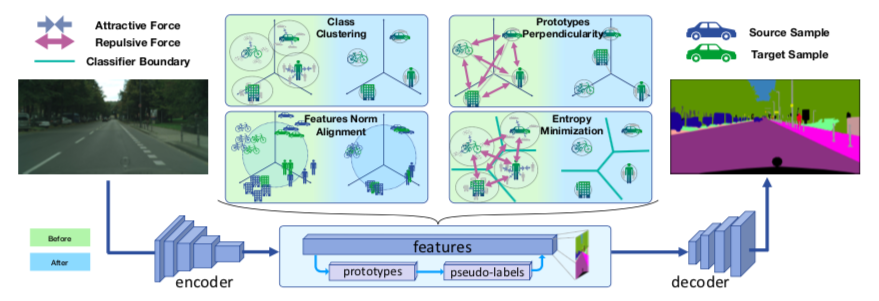
Results
The main quantitative and qualitative results are reported in the following.
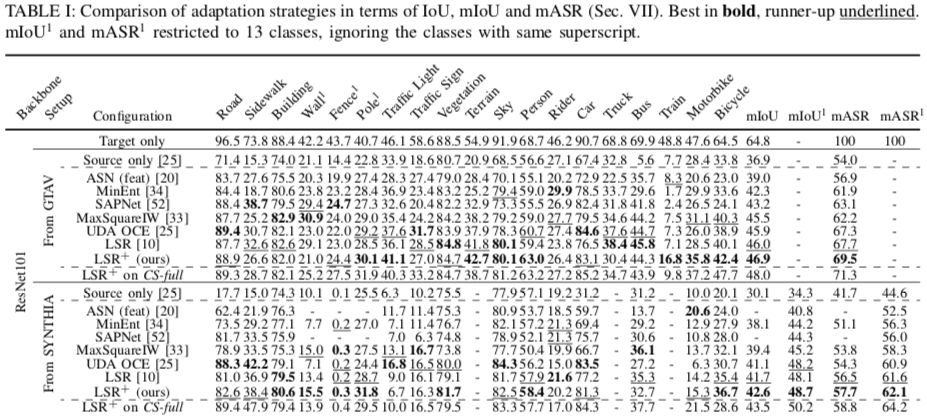
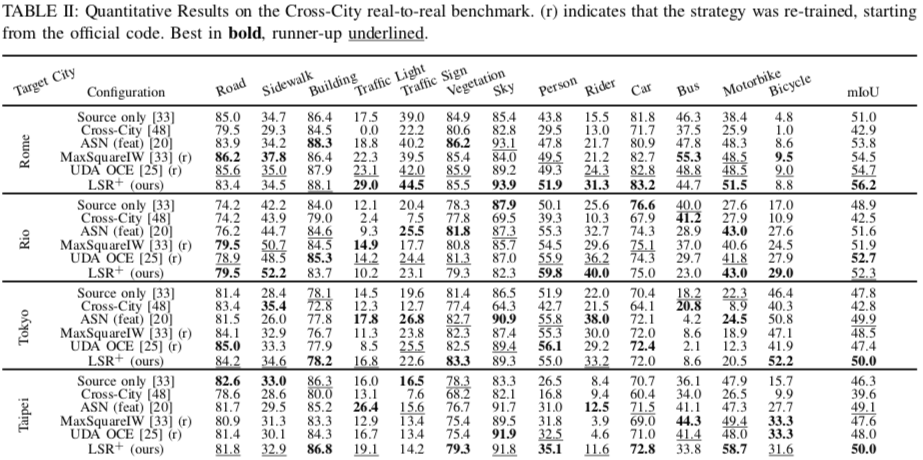
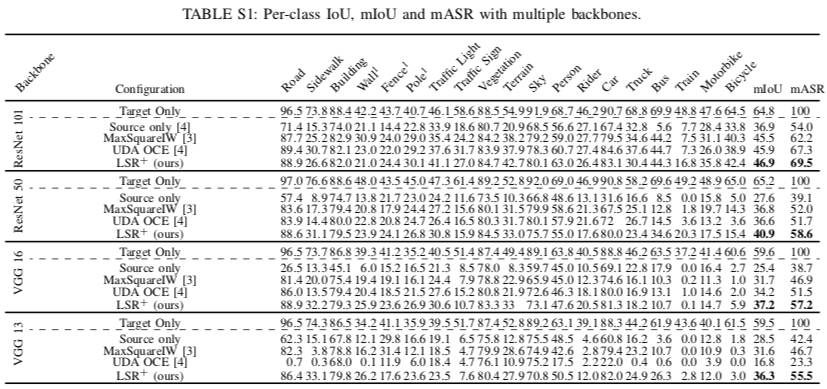
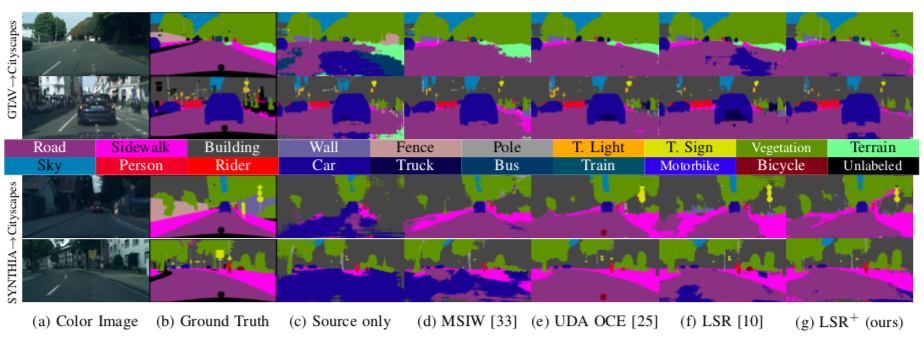
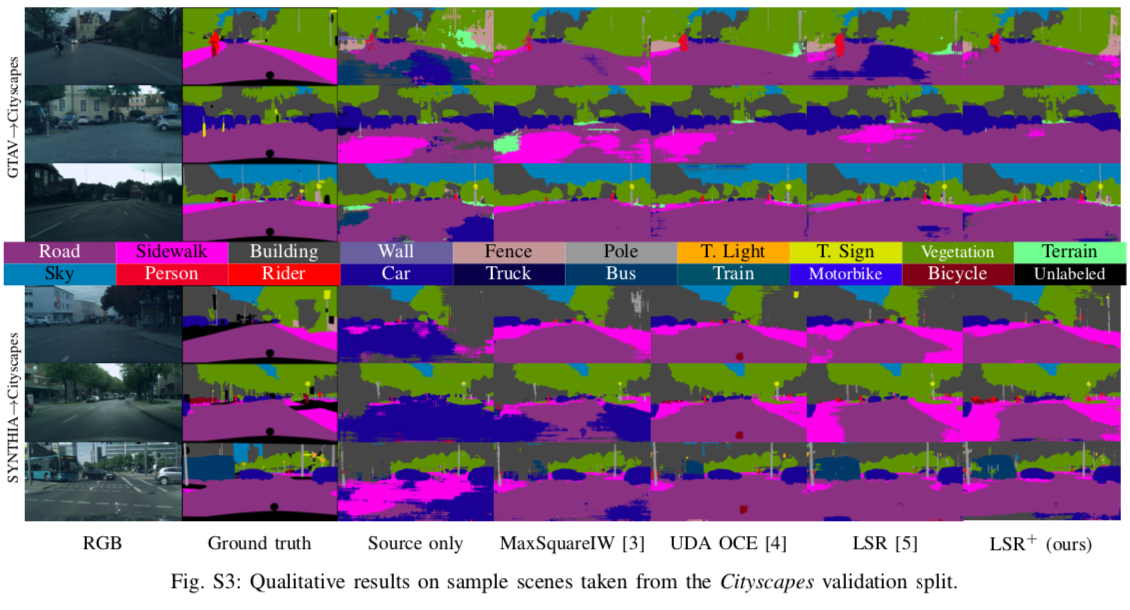
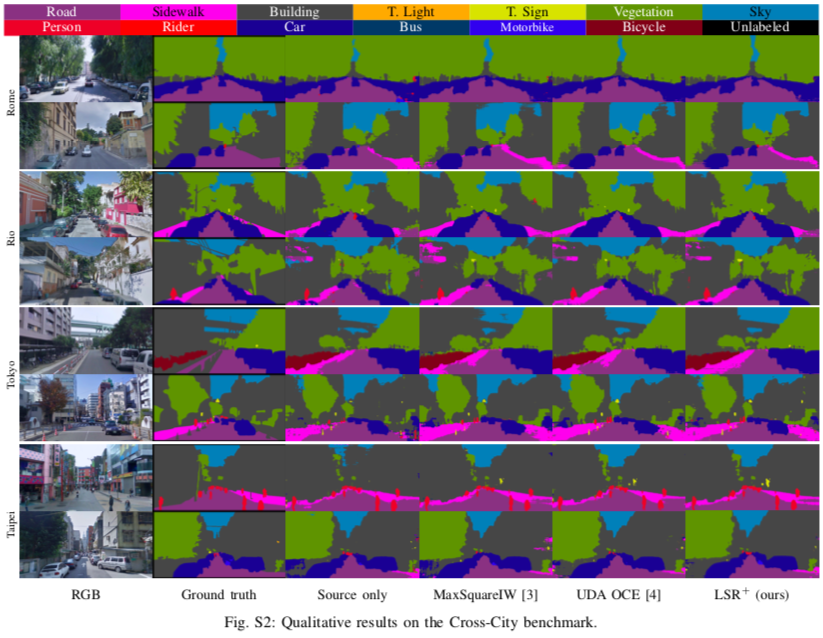
Contacts
For any information you can contact
lttm@dei.unipd.it
References
[1] F. Barbato, M. Toldo, U. Michieli, P. Zanuttigh; Adapting Segmentation Networks to New Domains by Disentangling Latent Representations; ArXiv Preprint arXiv:2108.03021, 2021.
[2] F. Barbato, M. Toldo, U. Michieli, P. Zanuttigh; Latent Space Regularization for Unsupervised Domain Adaptation in Semantic Segmentation; Proceedings of the IEEE/CVF Conference on Computer Vision and Pattern Recognition (CVPR) Workshop on Autonomous Driving, 2021, pp. 2835-2845.
xhtml/css website layout by Ben Goldman - http://realalibi.com